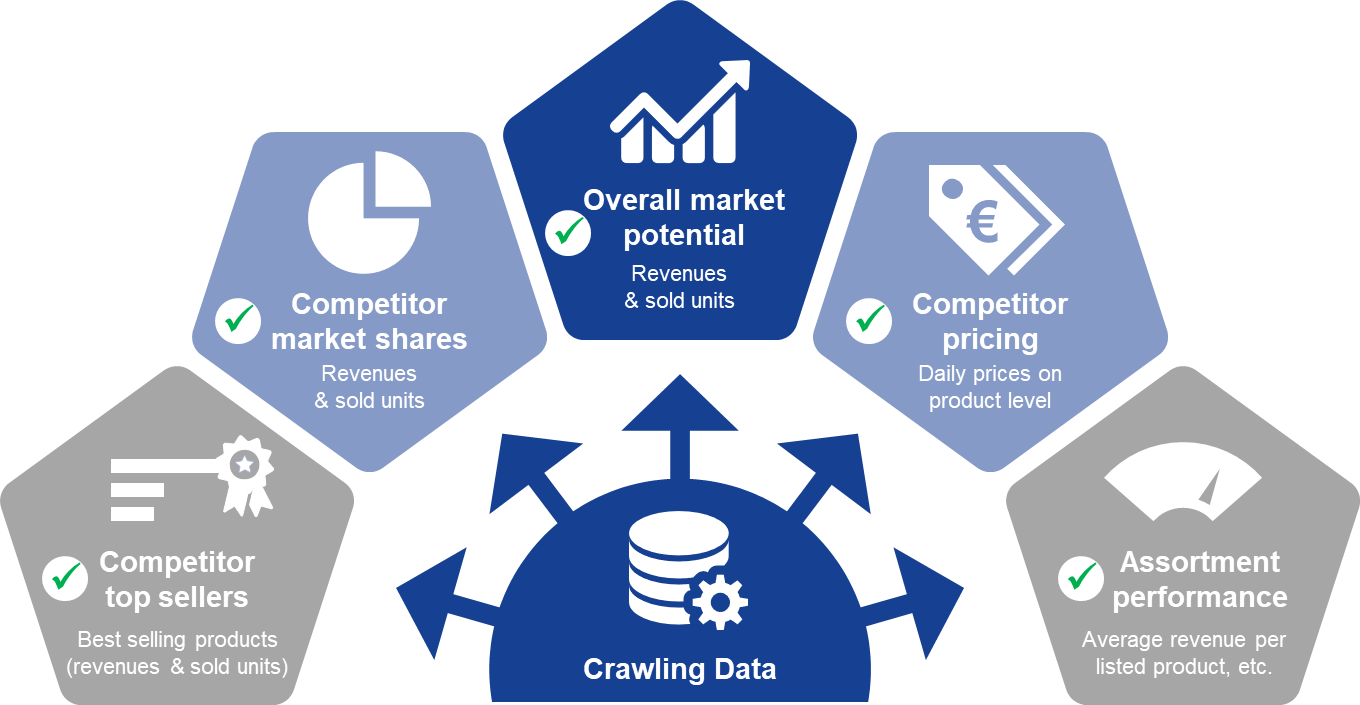Market Intelligence
What is Market Intelligence

Definition:
Market intelligence refers to the process of gathering, analyzing, and interpreting information about market trends, customer behaviors, competitor strategies, and industry developments to make informed business decisions. It involves collecting data from various sources, synthesizing insights, and translating them into actionable strategies to gain a competitive edge and drive business growth.
Analogies:
Think of market intelligence as a compass guiding business navigation. Just as a compass provides direction in unknown terrain, market intelligence illuminates the path forward in dynamic markets, helping businesses navigate challenges, seize opportunities, and stay ahead of the competition.
Further Description:
Market intelligence encompasses a broad spectrum of activities, including market research, competitor analysis, consumer insights, trend monitoring, and risk assessment. It leverages both primary and secondary data sources, such as surveys, interviews, industry reports, social media monitoring, and economic indicators, to uncover valuable insights and patterns that inform strategic decision-making.
Why is Market Intelligence Important?
Market intelligence plays a pivotal role in shaping business strategies and driving performance across various functions:
- Strategic Planning: Market intelligence provides valuable inputs for strategic planning, helping businesses identify market opportunities, assess competitive threats, and allocate resources effectively to achieve long-term objectives.
- Risk Mitigation: By monitoring market trends, regulatory changes, and competitive movements, market intelligence enables businesses to anticipate risks, proactively adapt to market dynamics, and mitigate potential disruptions to operations and growth.
- Customer Insights: Understanding customer needs, preferences, and behaviors is essential for delivering personalized experiences, developing innovative products, and building lasting relationships. Market intelligence helps uncover actionable insights into customer segments, buying patterns, and sentiment, guiding targeted marketing efforts and product development initiatives.
- Competitive Advantage: By analyzing competitors’ strengths, weaknesses, market positioning, and strategies, market intelligence empowers businesses to differentiate themselves, capitalize on competitor vulnerabilities, and carve out a unique value proposition that resonates with customers.
- Opportunity Identification: Market intelligence serves as a radar for identifying emerging trends, niche markets, and untapped segments ripe for expansion. It enables businesses to capitalize on new opportunities, enter new markets, and diversify revenue streams to sustain growth and competitiveness.
Key Components of Market Intelligence:
- Data Collection: Gather data from diverse sources, including market reports, customer surveys, social media analytics, competitor websites, industry publications, and government databases, ensuring comprehensive coverage and accuracy of information.
- Analysis and Interpretation: Analyze data using statistical methods, data visualization tools, and business intelligence platforms to extract meaningful insights, identify trends, patterns, and correlations, and derive actionable recommendations for decision-makers.
- Competitive Analysis: Evaluate competitors’ market share, product offerings, pricing strategies, distribution channels, and customer feedback to benchmark performance, identify competitive gaps, and inform competitive positioning and differentiation strategies.
- Market Segmentation: Segment the target market based on demographic, psychographic, geographic, and behavioral factors to tailor marketing messages, customize product offerings, and optimize resource allocation for maximum impact and relevance.
- Continuous Monitoring: Establish mechanisms for ongoing monitoring and tracking of market trends, consumer sentiment, competitor movements, and regulatory changes, enabling real-time adjustments to strategies and tactics in response to evolving market conditions.
Key Takeaways:
- Market intelligence is a cornerstone of strategic decision-making, providing businesses with valuable insights into market dynamics, customer preferences, and competitive landscapes.
- By harnessing market intelligence, businesses can anticipate market shifts, identify growth opportunities, mitigate risks, and stay ahead of competitors in fast-paced and dynamic environments.
- Investing in robust market intelligence capabilities empowers businesses to make informed decisions, optimize resource allocation, and drive sustainable growth and profitability in today’s increasingly competitive and complex marketplace.
Table of Contents




